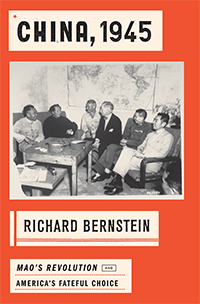
A riveting account of the watershed moment in America’s dealings with China that forever altered the course of East-West relations. As 1945 opened, America was on surprisingly congenial terms with China’s Communist rebels—their soldiers treated their American counterparts as heroes, rescuing airmen shot down over enemy territory. Chinese leaders talked of a future in which American money and technology would help lift China out of poverty. Mao Zedong himself held friendly meetings with U.S. emissaries, vowing to them his intention of establishing an American-style democracy in China. By year’s end, however, cordiality had been replaced by chilly hostility and distrust. Chinese Communist soldiers were setting ambushes for American marines in north China; Communist newspapers were portraying the United States as an implacable imperialist enemy; civil war in China was erupting. The pattern was set for a quarter century of almost total Sino-American mistrust, with the devastating wars in Korea and Vietnam among the consequences.
Richard Bernstein here tells the incredible story of that year’s sea change, brilliantly analyzing its many components, from ferocious infighting among U.S. diplomats, military leaders, and opinion makers to the complex relations between Mao and his patron, Stalin.
The talk will be followed by a book sale and signing.
This talk is sponsored by the Princeton-Harvard China and the World Program of the Woodrow Wilson School whose mission is to encourage research on China’s foreign relations and China within the international relations context


